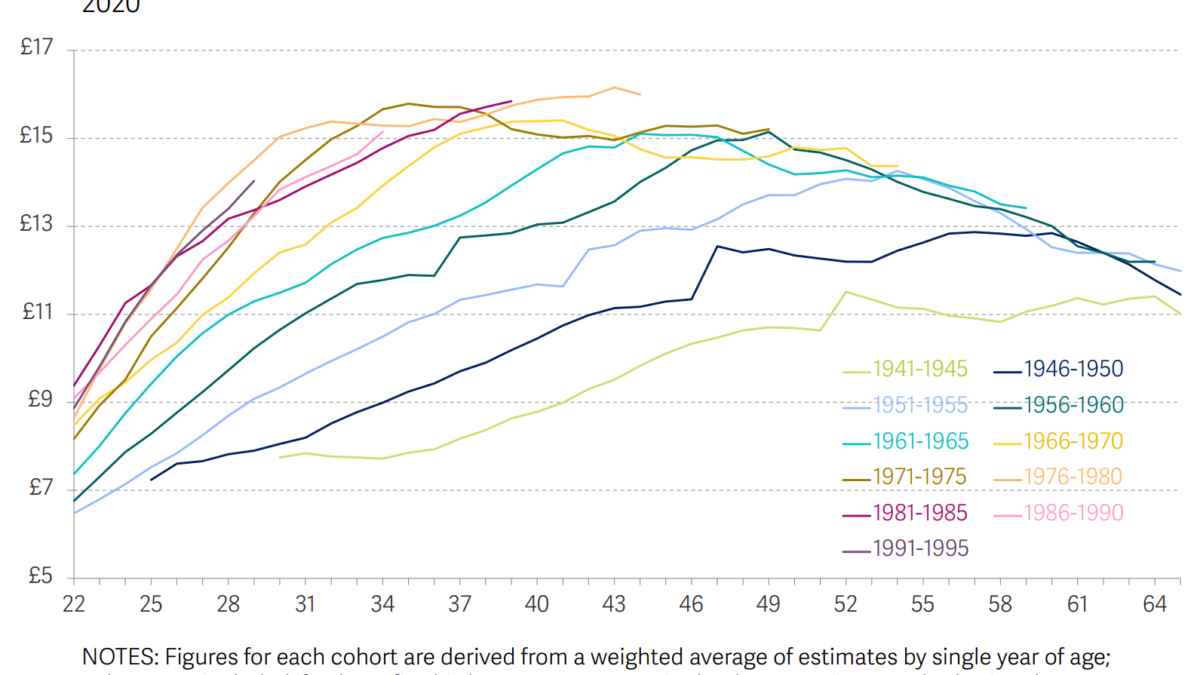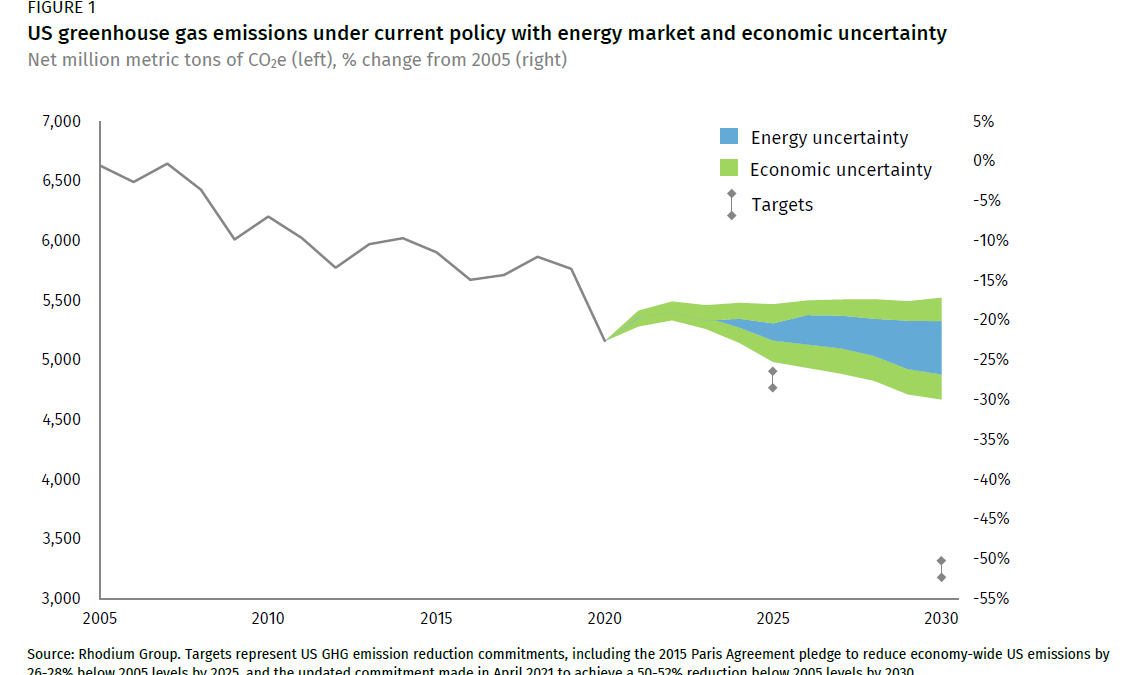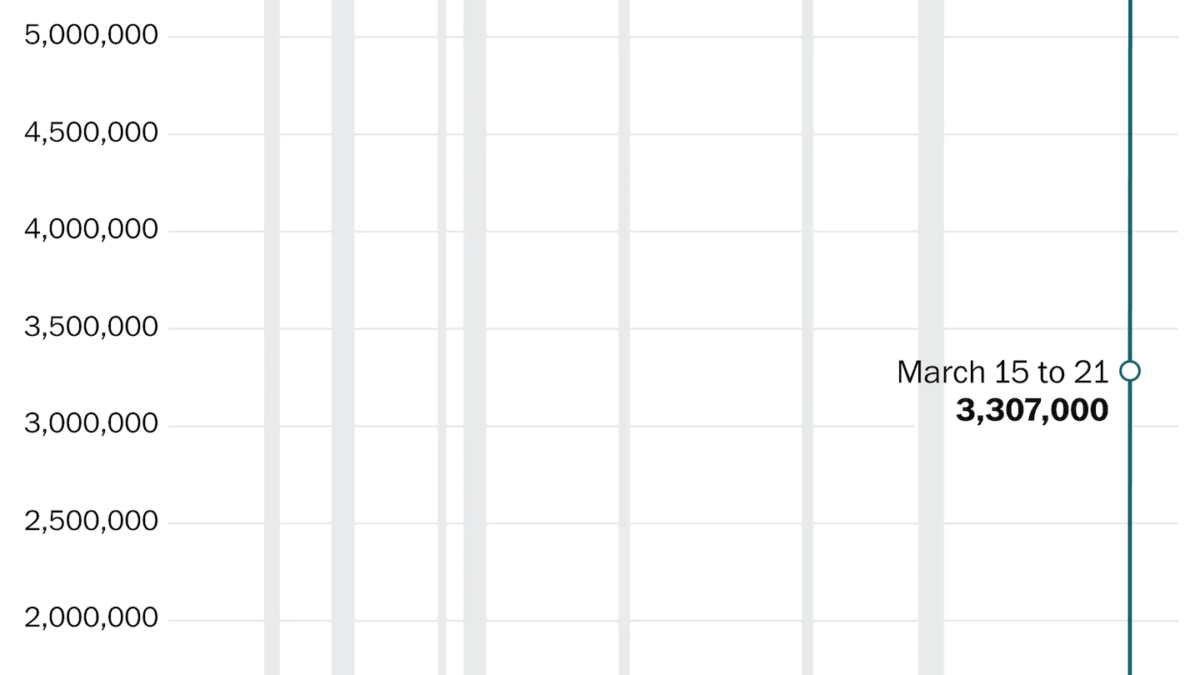Brazil’s Covid crisis is a warning to the whole world, scientists say – “The acceleration of the epidemic is leading to the collapse of public and private hospital systems”
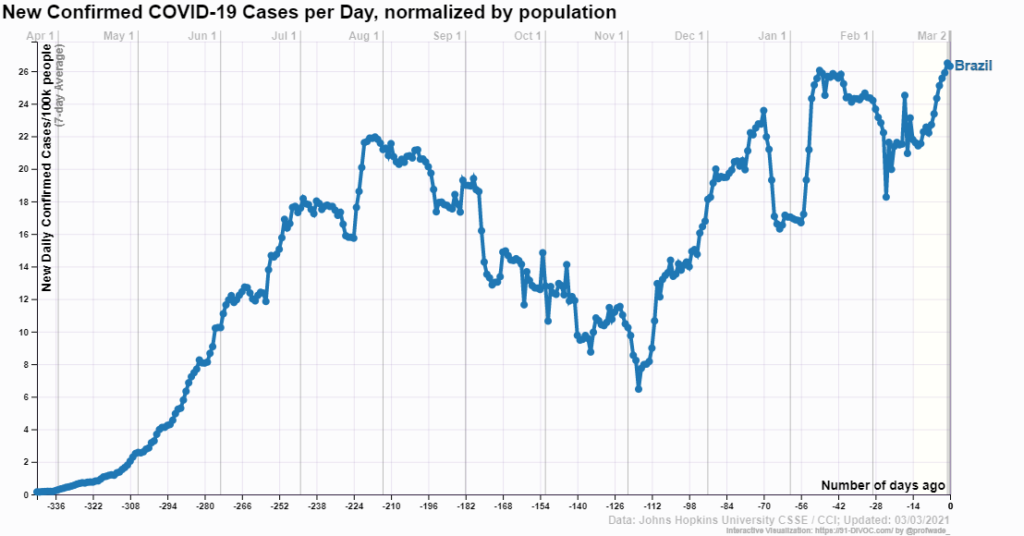
By Manuela Andreoni, Ernesto Londoño, and Letícia Casado
3 March 2021
RIO DE JANEIRO (The New York Times) – Covid-19 has already left a trail of death and despair in Brazil, one of the worst in the world. Now, a year into the pandemic, the country is setting another wrenching record.
No other nation that experienced such a major outbreak is still grappling with record-setting death tolls and a health care system on the brink of collapse. Many other hard-hit nations are, instead, taking tentative steps toward a semblance of normalcy.
But Brazil is battling a more contagious variant that has trampled one major city and is spreading to others, even as Brazilians toss away precautionary measures that could keep them safe.
On Tuesday, Brazil recorded more than 1,700 Covid-19 deaths, the highest single-day toll of the pandemic.
“The acceleration of the epidemic in various states is leading to the collapse of their public and private hospital systems, which may soon become the case in every region of Brazil,” the national association of health secretaries said in a statement. “Sadly, the anemic rollout of vaccines and the slow pace at which they’re becoming available still does not suggest that this scenario will be reversed in the short term.”
And the news just got worse for Brazil — and possibly the world.
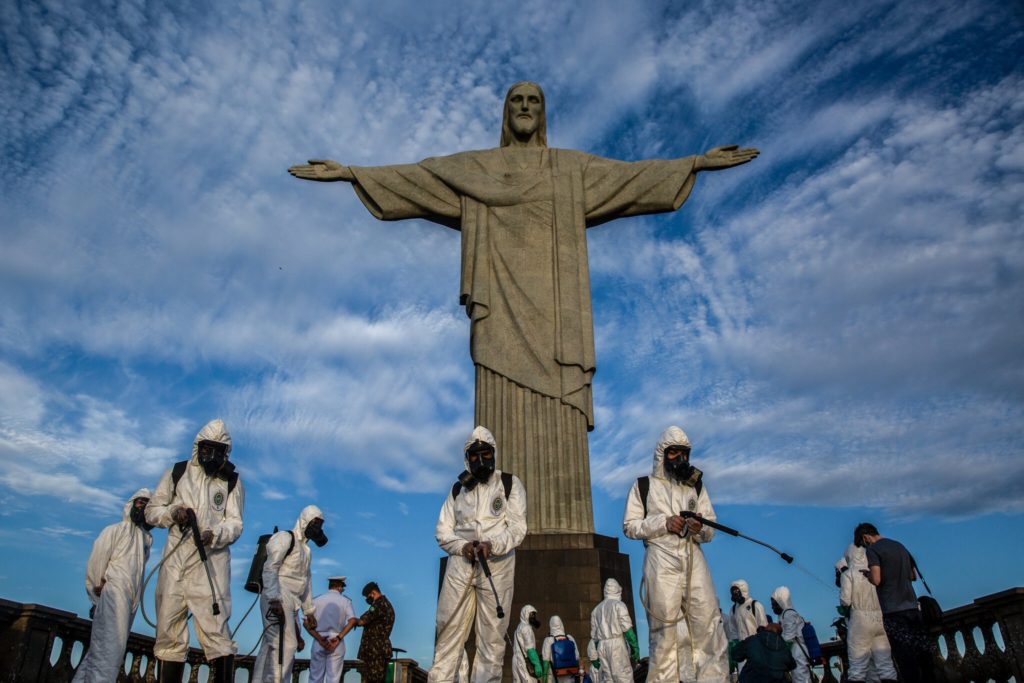
Preliminary studies suggest that the variant that swept through the city of Manaus is not only more contagious, but it also appears able to infect some people who have already recovered from other versions of the virus. And the variant has slipped Brazil’s borders, showing up in two dozen other countries and in small numbers in the United States.
Although trials of a number of vaccines indicate they can protect against severe illness even when they do not prevent infection with the variant, most of the world has not been inoculated. That means even people who had recovered and thought they were safe for now might still be at risk, and that world leaders might, once again, be lifting restrictions too soon. […]
Health minister Eduardo Pazuello, who called the variant a “new stage” of the pandemic, said last week that the government was ramping up its efforts and hopes to vaccinate roughly half of its population by June and the rest by the end of the year.
But many Brazilians have little faith in President Jair Bolsonaro, who has sabotaged lockdowns, repeatedly downplayed the threat of the virus, and promoted untested remedies long after scientists said they clearly did not work.
Just last week, the president spoke dismissively of masks, which are among the best defenses to curb contagion, claiming that they are harmful to children, causing headaches and difficulty concentrating. [more]
Brazil’s Covid Crisis Is a Warning to the Whole World, Scientists Say
